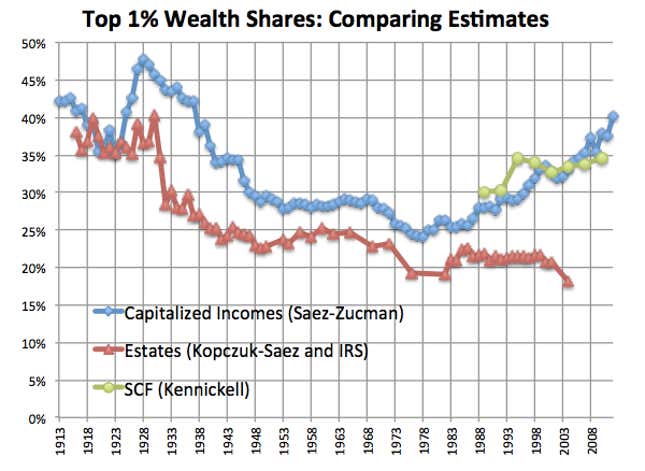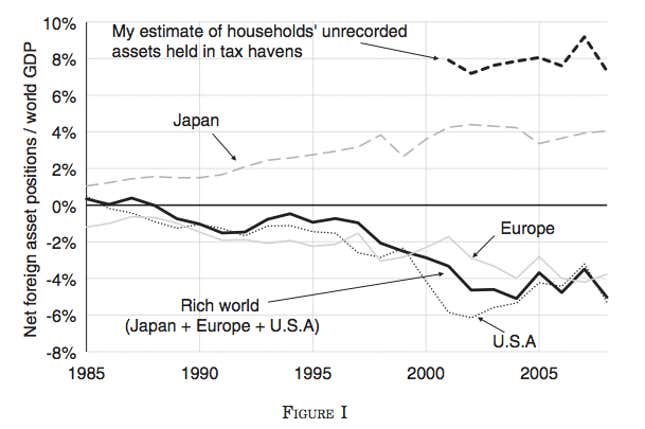How come different attempts to measure wealth inequality come up with different answers?
That’s a question raised by the Financial Times’ analysis of Thomas Piketty’s work on inequality, which compared his data set to others and identified discrepancies, particularly when using one experimental survey in the United Kingdom.
But one place where Piketty’s argument that inequality is rising seems to hold up is in the United States. Besides his own analysis, economists Emmanuel Saez and Gabriel Zucman have worked backward from US income tax data to create a measurement that also compares well with the Federal Reserve’s Survey of Consumer Finances:

You’ll notice it doesn’t match up as well with inequality tracked through estate tax data. And the reasons for that offer an important explanation of why measuring inequality is so hard: Wealth that evades the tax man also evades statisticians. According to Zucman, tax avoidance efforts, including those that shift wealth out of the US to countries with lower tax rates, have played played a larger and larger role in the dynamics of wealth since the 1980s. You can note above that the 1980s is when the estate tax survey starts to diverge from the two other attempts to measure US wealth inequality.
Of course, US estate tax data is sparse because so few people pay estate tax, and attempts to derive the wealth of the living from the wealth of the dead are necessarily roundabout. But perhaps the most important discrepancy is that the people who would pay the most estate tax do the most to avoid it: Witness the mystery tech billionaire who bought the world’s largest life insurance policy—worth $201 million—to more easily pass wealth to his heirs.
In another paper (pdf) that seeks to estimate the amount of wealth held in tax havens, Zucman argues that 8% of the world’s household wealth is held in tax havens and reinvested elsewhere—and most of that is from wealthy economies like the United States, Europe and Japan. Indeed, if Zucman is right, the difference is enough to reverse the capital position of the rich world, turning it from a net debtor to a net creditor:

That’s a shocking twist. Essentially, citizens of wealthy countries have shifted enough wealth offshore that it appears as though their economies are owned by foreigners. This analysis helps explain some other weird facts about the world economy: More dividends and interest are reported as paid across borders than are reported as received, and more securities are reported as sold than are reported as purchased—with the difference likely winding up in a tax haven, and not in measures of national wealth.